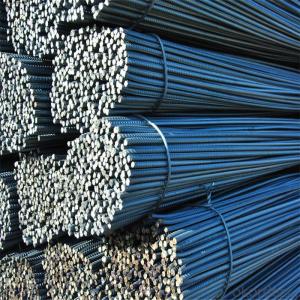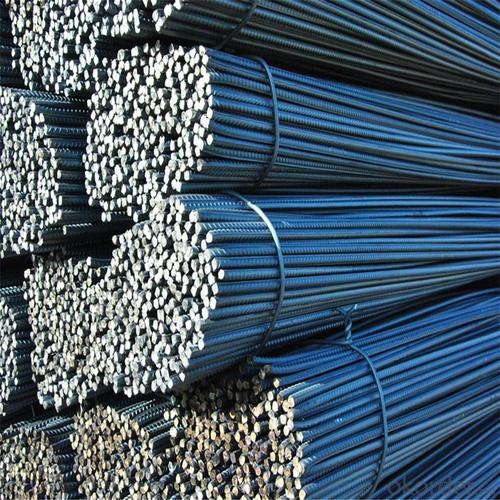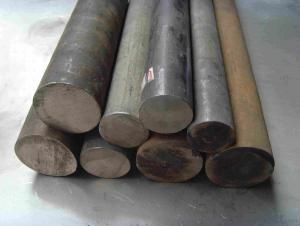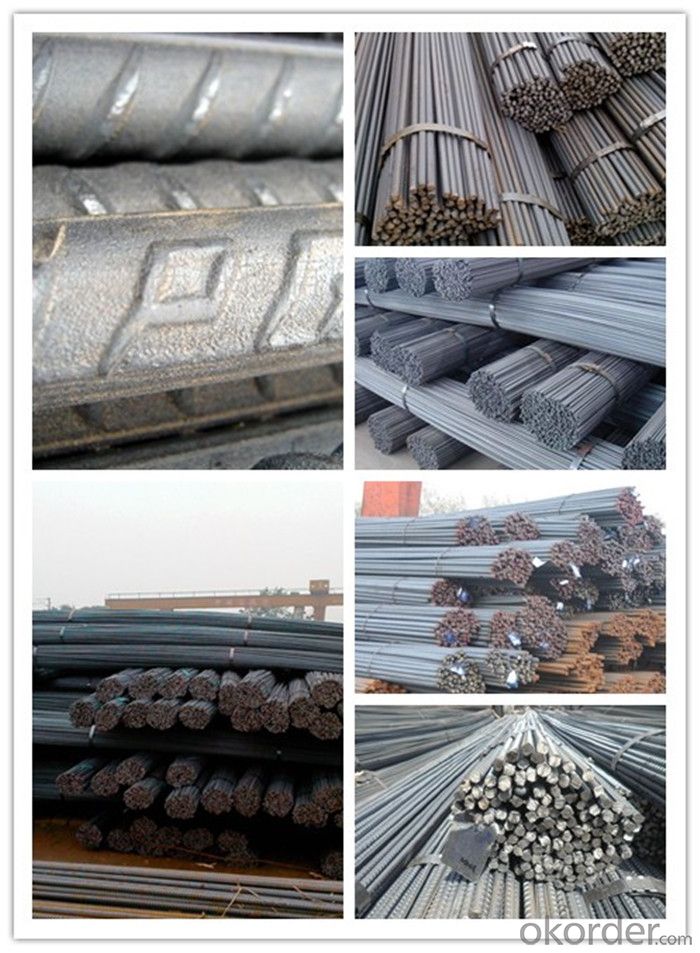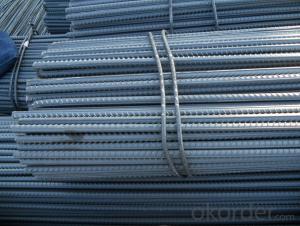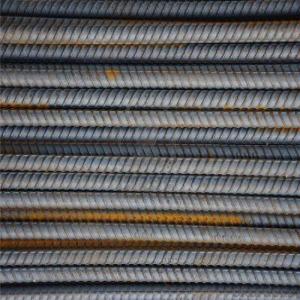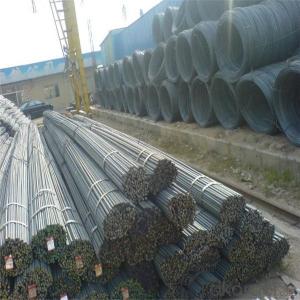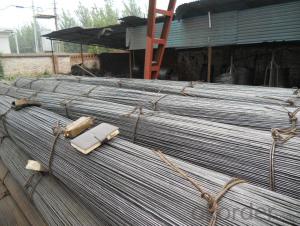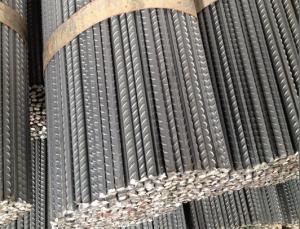Rebar Steel Grade 60 Supplier from Tianjin
- Loading Port:
- Tianjin
- Payment Terms:
- TT OR LC
- Min Order Qty:
- 100 m.t.
- Supply Capability:
- 50000 m.t./month
OKorder Service Pledge
OKorder Financial Service
You Might Also Like
Specification
Rebar Steel Grade 60 Supplier from Tianjin
Description of Rebar Steel Grade 60:
1, Diameter: 5.5mm-10mm rounds reinforcing steel bar
10m- 40 rods reinforcing Rebar Steel Grade 60
2, Length: 6m, 9m, 12m or as your requests.
3, Standard: GB, ASTM, AISI, SAE, DIN, JIS, EN.
2, Produce Process: smelt iron - EAF smelt billet - ESR smelt billet -
hot rolled or cold drawn to get the steel round bar and plate
3, Heat Treatment: annealed, normalized, temperied, quenched
4, Surface Treatment: Black , Bright, Polish or as your requirements.
5, Quality Assurance: We accept third party inspection for all orders.
Chemical Composition of Rebar Steel Grade 60:
Grade | Chemical composition(%) | |||||
Reinforcing steel bar HRB335 | C | Mn | Si | S | P | B |
≤0.25 | ≤1.60 | ≤0.80 | ≤0.045 | ≤0.045 | >0.0008 | |
Physics Capability | ||||||
Yield Strength(N/cm2) | Tensile Strength(N/cm2) | Elongation(%) | ||||
≥ 335 | ≥490 | ≥16 | ||||
Reinforcing steel bar HRB400 | C | Mn | Si | S | P | B |
≤0.25 | ≤0.16 | ≤0.80 | ≤0.045 | ≤0.045 | 0.04-0.12 | |
Physics Capability | ||||||
Yield Strength(N/cm2) | Tensile Strength(N/cm2) | Elongation(%) | ||||
≥ 400 | ≥ 570 | ≥ 14 | ||||
Product Show of Rebar Steel Grade 60:
Company Information:
CNBM International Corporation is the most important trading platform of CNBM group.
Whith its advantages, CNBM International are mainly concentrate on Cement, Glass, Iron and Steel, Ceramics industries and devotes herself for supplying high qulity series of refractories as well as technical consultancies and logistics solutions.

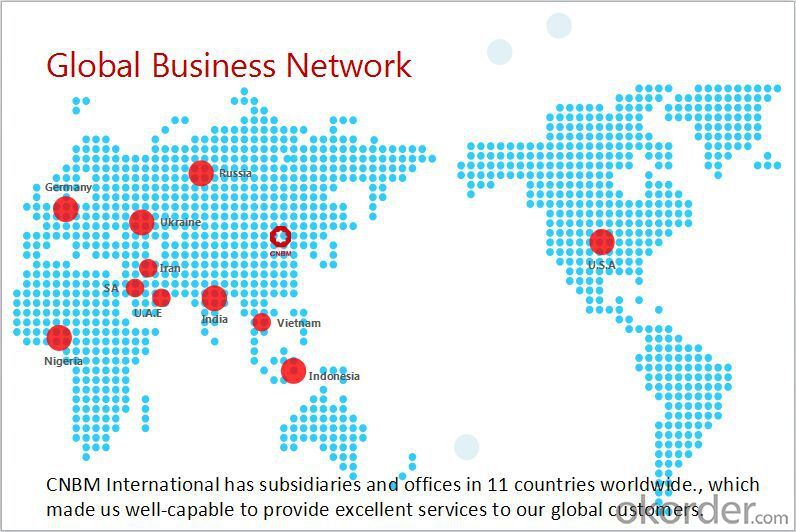
FAQ:
1, Your advantages?
professional products inquiry, products knowledge train (for agents), smooth goods delivery, excellent customer solution proposale
2, Test & Certificate?
SGS test is available, customer inspection before shipping is welcome, third party inspection is no problem
3, Factory or Trading Company?
CNBM is a trading company but we have so many protocol factories and CNBM works as a trading department of these factories. Also CNBM is the holding company of many factories.
4, Payment Terms?
30% TT as deposit and 70% before delivery.
Irrevocable L/C at sight.
5, Trading Terms?
EXW, FOB, CIF, FFR, CNF
6, After-sale Service?
CNBM provides the services and support you need for every step of our cooperation. We're the business partner you can trust.
For any problem, please kindly contact us at any your convenient time. We'll reply you in our first priority within 24 hours.
- Q: How is special steel used in the production of heat exchangers?
- Special steel is widely used in the production of heat exchangers due to its unique properties that make it ideal for this application. Heat exchangers are devices designed to transfer heat from one medium to another, and special steel offers several advantages in this process. Firstly, special steel has excellent thermal conductivity, meaning it can efficiently transfer heat from one fluid to another. This property is crucial for heat exchangers, as it allows for the rapid and efficient exchange of thermal energy. Additionally, the high corrosion resistance of special steel makes it highly suitable for heat exchanger applications. Heat exchangers often come into contact with corrosive fluids or gases, and regular steel may corrode over time. However, special steel is specifically designed to resist corrosion, ensuring the longevity and reliability of the heat exchanger. Furthermore, special steel offers exceptional strength and durability, allowing heat exchangers to withstand high pressures and temperatures. Heat exchangers often operate in challenging environments, and special steel can withstand these harsh conditions without compromising its structural integrity. Special steel also provides excellent weldability and formability, making it easier to manufacture complex heat exchanger designs. Its versatility allows for the production of heat exchangers in various shapes and sizes, catering to the specific needs of different industries. In summary, special steel is used in the production of heat exchangers due to its high thermal conductivity, corrosion resistance, strength, durability, weldability, and formability. These properties ensure efficient heat transfer, resistance to corrosion, and the ability to withstand harsh operating conditions, making special steel an ideal material for heat exchanger applications.
- Q: Can special steel be used in the energy sector?
- Yes, special steel can be used in the energy sector. Special steel refers to various types of high-performance alloys that are specifically designed for applications that require exceptional strength, durability, and resistance to corrosion and extreme temperatures. These properties make special steel an ideal choice for numerous components used in the energy sector. In the oil and gas industry, special steel is commonly used for the construction of pipelines, drilling equipment, and offshore platforms. Its high strength and corrosion resistance help in ensuring the integrity and reliability of these critical structures, even in harsh environments. Special steel is also widely utilized in power generation plants. For example, in thermal power plants, where steam is generated to produce electricity, special steel is used to manufacture boiler tubes and pressure vessels. The exceptional heat resistance and structural integrity of special steel ensure the safe and efficient operation of these components under high temperatures and pressure. Furthermore, special steel finds applications in renewable energy sectors such as wind and solar power. In wind turbines, for instance, special steel is used to manufacture rotor shafts, gears, and bearings, which are subjected to high mechanical loads. Similarly, in concentrated solar power plants, special steel is employed in the construction of the heat exchangers, receivers, and storage systems. Overall, the use of special steel in the energy sector is crucial for enhancing the overall performance, safety, and longevity of various components and structures. Its unique properties make it an indispensable material in supporting the energy industry's infrastructure and operations.
- Q: How does special steel perform in stamping applications?
- The unique properties of special steel make it an excellent choice for stamping applications. Its high strength and durability ensure that it can withstand wear and tear during the stamping process, resulting in longer tool life and reduced maintenance costs. Additionally, special steel's heat resistance allows it to maintain its structural integrity even at high temperatures, preventing warping or deformation. Its exceptional dimensional stability ensures precise and consistent results, while its excellent formability allows for the creation of intricate designs. Overall, special steel's properties make it a reliable and versatile option for a wide range of stamping applications.
- Q: How does special steel perform in medical applications?
- Special steel, which is also referred to as stainless steel, has established itself as a material of great versatility and reliability for various medical applications. Its distinct properties render it an optimal choice for medical instruments, devices, and equipment. Above all, special steel exhibits a high level of corrosion resistance, a crucial characteristic in medical settings where exposure to moisture and the need for sterilization are common occurrences. This resistance enables the steel to maintain its durability and prevents any degradation over time, making it suitable for prolonged use. Furthermore, special steel is biocompatible, meaning it does not elicit any negative reactions when in contact with living tissues or bodily fluids. This biocompatibility is of utmost importance for medical implants like prosthetics, orthopedic screws, and dental implants, as it minimizes the risk of rejection or infection. Moreover, special steel offers exceptional strength and hardness, enabling it to withstand the demanding conditions encountered during medical procedures. It can retain its structural integrity even when subjected to extreme temperatures or high-pressure environments, making it ideal for surgical instruments and cutting tools. Its hardness also facilitates the creation of sharp and precise cutting edges, ensuring the accuracy and effectiveness of surgical procedures. Additionally, special steel boasts a smooth surface finish, which renders it easy to clean and sterilize. This attribute is of paramount importance in medical applications where maintaining a sterile environment is crucial to prevent the spread of infections. The smooth surface also hinders the accumulation of bacteria or other contaminants, thereby reducing the risk of contamination. In conclusion, special steel has undeniably proven itself as a highly reliable and versatile material for medical applications. Its corrosion resistance, biocompatibility, strength, and ease of sterilization make it an ideal choice for medical instruments, devices, and implants. The exceptional performance of special steel in medical applications significantly contributes to improving patient care, ensuring safety, and enhancing the overall effectiveness of medical procedures.
- Q: How does special steel contribute to reducing product weight while maintaining strength?
- Special steel contributes to reducing product weight while maintaining strength through its unique properties and composition. Special steel often has a higher strength-to-weight ratio compared to other materials, allowing manufacturers to use less steel without compromising on strength. Additionally, special steel can be engineered to have specific characteristics, such as high tensile strength or corrosion resistance, further enhancing its performance. By utilizing special steel, manufacturers can create lighter products without sacrificing durability, resulting in reduced weight and improved efficiency.
- Q: What are the different heat treatment methods used for special steel?
- There are several heat treatment methods used for special steel, including annealing, quenching, tempering, normalizing, and case hardening.
- Q: How is the tensile strength of special steel measured?
- The tensile strength of special steel is typically measured using a standardized test called a tensile test. In this test, a sample of the special steel is subjected to an increasing amount of tension until it reaches its breaking point. During the test, the applied force is measured, and the corresponding deformation or elongation of the sample is also recorded. The tensile strength is then calculated by dividing the maximum force applied to the sample by its cross-sectional area before the test. This measurement provides an indication of the maximum amount of stress the steel can withstand before it fails or breaks. The tensile strength is an important parameter in determining the suitability of special steel for various applications and ensuring the structural integrity and reliability of the material.
- Q: What are the requirements for special steel used in corrosive environments?
- The requirements for special steel used in corrosive environments include high resistance to corrosion, especially against specific corrosive agents such as acids, alkalis, or saline solutions. The steel should possess a strong passive film formation ability, preventing further corrosion. It should also have good mechanical properties, including high strength and toughness, to withstand the harsh conditions. Additionally, the steel must possess good welding and fabrication characteristics, as well as be cost-effective and readily available.
- Q: Can special steel be used in the automotive racing industry?
- Yes, special steel can be used in the automotive racing industry. Special steel alloys, such as high-strength or lightweight steels, can offer enhanced performance and durability, making them suitable for various racing applications. These steels can be used in the construction of engine components, chassis, suspension systems, and other critical parts, helping to improve speed, handling, and overall performance on the racetrack.
- Q: What are the different methods of surface laser cladding for special steel?
- There are several methods of surface laser cladding for special steel, including powder-based laser cladding, wire-based laser cladding, and direct laser cladding. Powder-based laser cladding involves melting a powder material onto the surface of the steel using a laser beam. Wire-based laser cladding uses a wire feed system to deliver the material to be cladded onto the surface, which is then melted by the laser. Direct laser cladding directly melts the material onto the steel surface without the need for additional feed systems, making it a more efficient and precise method.
Send your message to us
Rebar Steel Grade 60 Supplier from Tianjin
- Loading Port:
- Tianjin
- Payment Terms:
- TT OR LC
- Min Order Qty:
- 100 m.t.
- Supply Capability:
- 50000 m.t./month
OKorder Service Pledge
OKorder Financial Service
Similar products
Hot products
Hot Searches
Related keywords
